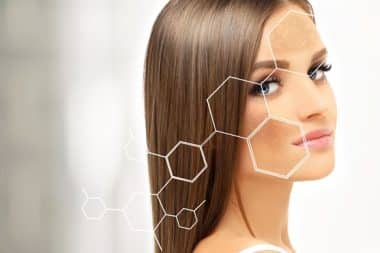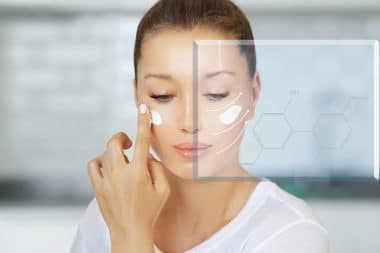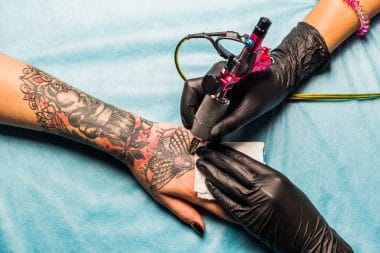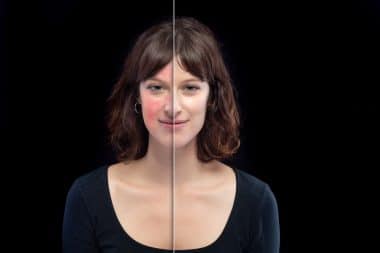A lot of people are becoming more health and figure-conscious nowadays, which is actually a good thing. And one of the popular ways to lose weight is the keto diet. Most people adapt this eating habit expecting to lose weight even without regular exercise. However, some individuals experience an unexpected bonus: a much clearer and smoother skin. So, we can’t help but wonder about the connection of keto diet and acne.
In this article, we will explore this topic even more. We are as excited as you are to find out if we can really hit two birds with one stone by following a ketogenic diet.
How Does Acne Develop?
Acne develops as a result of complex interactions in the skin. Sebaceous glands are located at the outer layer of the skin connected to the hair follicles. These glands produce sebum, the oily, waxy substance that waterproofs the skin and hair. Sebum is being constantly shed and replaced. However, this system is impaired in the case of acne.
With acne, the sebaceous glands produce excessive amount of sebum, which is influenced by an increased in insulin and testosterone. Excess oils end up clogging the hair follicles triggering acne formation. Moreover, there is one type of bacteria known as Propionibacterium acnes that is normally present in the outer layer of the skin in small amounts. However, during acne, the concentration of these bacteria increases dramatically, causing inflammation of the clogged pores and leading to the formation of whiteheads, pustules, and cysts known as acne.
The Connection between Diet and Acne
Diets play a big role in the formation of acne, more than the influence of genetics, which for a time was believed to be the leading cause of acne. In the past, research on acne was focused on the ground that a lot of Westerners suffered from acne while people from far-flung areas and the frozen north did not. This was believed to be a strong proof regarding the connection between acne and genetics.
However, this notion was turned down when people from these areas began to leave their native lands and assimilate. Not long enough, their once clear and smooth skin also developed acne. At first, doctors and researchers can’t explain the reason behind, but it didn’t take long before the culprit was discovered.
Doctor Otto Schaefer explained what happened in his article “When the Eskimos Comes to Town,”: “From 1 meal of high protein, low fat and practically no carbohydrates with frequent nibbling the rest of the day on fish, the Eskimo family in settlements gets 3 rich meals a day and seemingly endless sweet drinks, candies, and chocolates.”
Alas, it was clear as ice that the formation of acne on their once clear and smooth skin was due to high carbohydrate intake.Â
Can Ketogenic Diet Improve Acne?
In a 2012 article, Italian researchers discussed the potential benefits of ketogenic diets for acne. They found out that keto is able to improve acne in three ways:
- By reducing the level of insulin. This is crucial since an elevated insulin level trigger the release of more skin cells, sebum, and androgens, which are all factors that cause acne eruption. Ketogenic diets can dramatically decrease insulin levels.
- By decreasing inflammation. Inflammation is the reason why acne is red, sore, and tender. Low-carbohydrate diet and ketogenic diets have been shown to decrease inflammation.
- By lessening the level of insulin-like growth factor 1 (IGF-1). This hormone is believed to cause the clogging of pores, which can lead to acne. Hence, decreasing its level can help the formation of acne. And apparently, adapting to a low-carb or ketogenic diet can help in maintaining a low level of IGF-1.
Other Ways to Improve Skin and Get Rid of Acne
Decreasing carbohydrate and dairy intake should have an enormous effect in improving your skin health. However, if this approach isn’t working out well for you, these suggestions might help if you want to give a try.
- Eat fatty fish several times a week. We all know that certain fish contain high amount of long-chain omega-3 fatty acids. The good news is that omega-3 fatty acids have anti-inflammatory effect, which can aid in the prevention of acne. Best sources of long-chain omega-3 fatty acids are salmon, sardines, mackerel, anchovies, and herring.
- Consume low-carbohydrate vegetables in every meal. Green, leafy and cruciferous vegetables may help in hormonal regulation and improve skin condition.
- Drink green tea. A 2016 study found out that green tea extract dramatically decreased acne lesions in adult women with moderate to severe acne. Green tea is the best source of the antioxidant EGCG (Epigallocatechin gallate), which is known to have a skin protective effect.
- Limit or avoid dark chocolate consumption. You may think that a sugar-free dark chocolate won’t have a significant effect to the skin. But, on the contrary, a 2016 study found out that it may even worsen breakouts in acne-prone men. So just to be safe, if you can’t totally say goodbye to dark chocolate, just limit your intake.
- Stick to the keto diet for at least a month. Just as with any form of diet and skin care regimen, you need to give it enough time. With keto, you may see the difference in your skin by sticking to it for a month.
- Exercise regularly. Exercise can increase your insulin sensitivity and lessen the severity of your acne. You may start with a 15-30 minute walk every day.
- Try intermittent fasting with keto diet. You can decrease your insulin and IGF-1 levels by restricting your caloric intake to an 8-hour eating window every day. And like what was mentioned earlier, a reduction in insulin and IGF-levels can help in the prevention of acne.
Can Ketogenic Diet Improve Acne? #HealthStatus








Reply